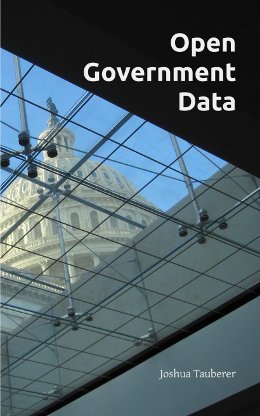New Hampshire HB 418
New Hampshire bill HB 418 (2011 session), written by technologist-turned-representative Seth Cohn, requires state software acquisitions to consider open source software, requires new data standards created by the state to be open standards, and directs the commissioner of information technology to develop state-wide information policies based on the 8 Principles. The bill was signed into law in March 2012.1
The bill’s open standards language was copied into Oklahoma bill HB 2197 which was enacted in April 2012.2
Other definitions of open data can be found in California SB 1002 (2012)3, which is currently pending in the California Senate, and the laws discussed at the end of The 21st Century: Data Policy.
While the New Hampshire bill is excerpted below, I have included a significant portion of it because it is interesting to see how data policy can be translated into legal language.
AN ACT relative to the use of open source software and open data formats by state agencies and relative to the adoption of a statewide information policy regarding open government data standards. (\ldots)
This bill requires state agencies to consider open source software when acquiring software and promotes the use of open data formats by state agencies. This bill also directs the commissioner of information technology to develop a statewide information policy based on principles of open government data. (\ldots)
II. “Open standards” means specifications for the encoding and transfer of computer data that: (a) Is free for all to implement and use in perpetuity, with no royalty or fee; (b) Has no restrictions on the use of data stored in the format; (c) Has no restrictions on the creation of software that stores, transmits, receives, or accesses data codified in such way; (d) Has a specification available for all to read, in a human-readable format, written in commonly accepted technical language; (e) Is documented, so that anyone can write software that can read and interpret the complete semantics of any data file stored in the data format; (f) If it allows extensions, ensures that all extensions of the data format used by the state are themselves documented and have the other characteristics of an open data format; (g) Allows any file written in that format to be identified as adhering or not adhering to the format; and (h) If it includes any use of encryption or other means of data obfuscation, provides that the encryption or obfuscation algorithms are usable in a royalty-free, nondiscriminatory manner in perpetuity, and are documented so that anyone in possession of the appropriate encryption key or keys or other data necessary to recover the original data is able to write software to access the data.
(\ldots)
I. The commissioner shall assist state agencies in the purchase or creation of data processing devices or systems that comply with open standards for the accessing, storing, or transferring of data. The commissioner shall: (a) Ensure that any new data standards which the state of New Hampshire defines and to which it owns all rights are open standards compliant. (b) Use open standards unless specific project requirements preclude use of an open data format. (c) Reexamine existing data stored in a restricted format to which the state of New Hampshire does not own the rights every 4 years to determine if the format has become open and, if not, whether an appropriate open standard exists. (d) Make readily accessible, on the state website, documentation on open data formats used by the state of New Hampshire. When data in open format is made available through the state’s website, a link shall be provided to the corresponding data format documentation.
21-R:14 Statewide Information Policy on Open Government Data Standards.
I. The commissioner shall develop a statewide information policy based on the following principles of open government data. According to these principles, open data is data that is:
[the 8 Principles are included here]
(\ldots) Each agency that adopts the policy shall designate a contact person responsible for oversight and implementation of open government data standards for that agency. The contact shall act as a liaison between the department, the implementing agency, and the public in matters related to open government data standards.
 Open Government Data: The Book
Open Government Data: The Book